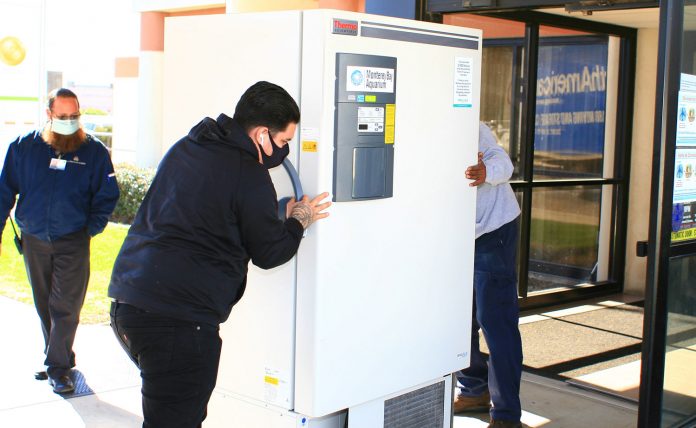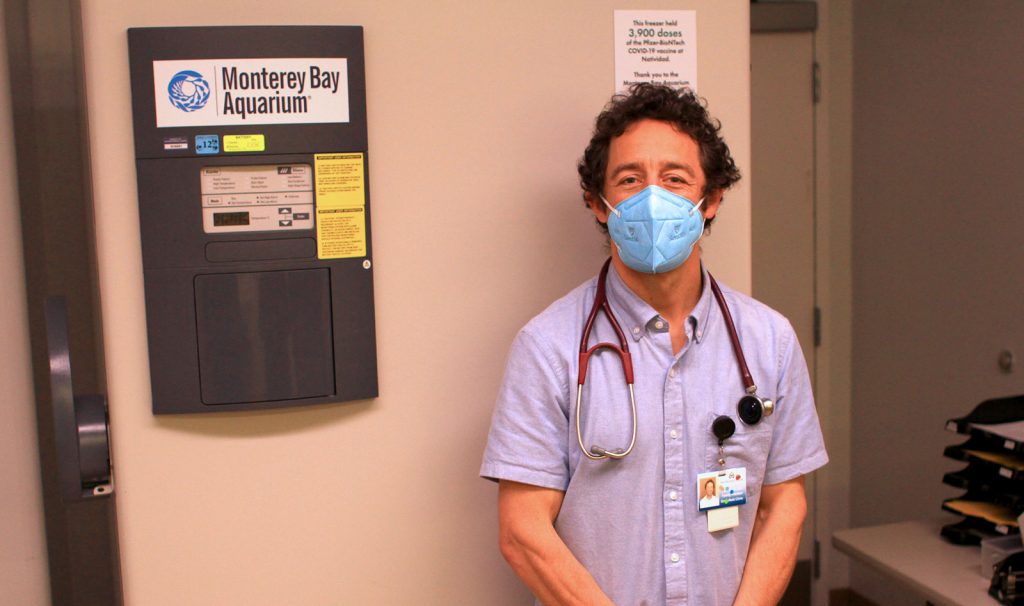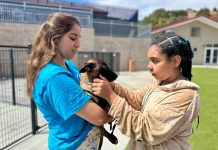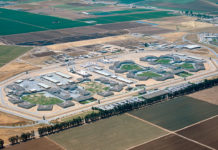
KING CITY — Monterey Bay Aquarium has loaned a freezer capable of reaching sub-zero temperatures to Mee Memorial Healthcare System in an effort to help the South Monterey County hospital administer Covid-19 vaccines in the area.
“While vaccines remain in short supply in Monterey County, this is great news,” said Rena Salamacha, CEO at Mee Memorial. “When the state and county release more Pfizer vaccines, this freezer will help to expand our ability to inoculate even more people in South County, keeping our communities safe and prioritized.”
The freezer had previously been on loan to Natividad Medical Center in Salinas, but it was delivered to Mee Memorial Hospital in King City on Feb. 18 after Natividad obtained a permanent freezer.
“Thanks to Monterey County Supervisor Chris Lopez and the Monterey Bay Aquarium, we’ve been able to borrow this freezer, which can support distribution of the Pfizer vaccine,” said Dr. Joshua Deutsch, a family practice physician at Mee Memorial.
Of the two vaccines approved by the U.S. Food and Drug Administration, the Moderna and Pfizer vaccines, Mee was only able to carry the Moderna vaccine due to the Pfizer doses requiring storage temperatures of minus 70 degrees Fahrenheit.
“This ultra-low temperature research freezer enables Mee Memorial to store and dispense the Pfizer Covid-19 vaccine and will boost its ability to serve families and farmworkers,” said Chris Lopez, Monterey County supervisor for District 3. “Many essential workers in the ag and food services sectors have a high occupational risk of Covid-19 infection and are eager to be vaccinated. This loan will allow Mee Memorial to offer both types of vaccine.”
According to Deutsch, Mee’s vaccination program is “going very well.”
“We vaccinated around 250 people this week,” he said. “In total, besides the healthcare workers, a total of 1,500 people have been vaccinated here at Mee Memorial Hospital, but the main limitation has been the availability of the vaccines.”

Jonathan Estey, plant operation manager, estimated the freezer had a maximum capacity of at least 20,000 doses.
“It probably will be more than we will be able to get in, but we have that capability if need be,” Estey said.
“We won’t be limited by the storage capacity of this,” Deutsch added. “It will be the availability of vaccines we get from the companies and from the state of California. … This is going to allow us to have both vaccines to better vaccinate this community.”
Mee Memorial’s allocation numbers have remained lower than the county’s other three hospitals, two located in Salinas and one outside Monterey.
“This has been a limitation for the distribution of the Pfizer vaccine around the country and around the world … especially for rural areas and small, community hospitals,” Deutsch said. “Right now vaccine distribution and access is a huge life-or-death factor that determines who lives and dies of this virus and what communities are served first and who’s later in line.”
Deutsch noted that if Mee Memorial received more doses in its allocations, the hospital would certainly use them in local immunization efforts.
“If we were to get 2,000 vaccines tomorrow, we would vaccinate 2,000 people,” he said. “Every vaccine that has come our way has gone into an arm that week. We’re good about getting people vaccinated. … The vaccines are coming and this is a huge step in the right direction for our community.”
The freezer left Natividad with a magnetic plaque, which announced it had held a total of 3,900 doses that were administered from the site. Plans are in the works for another such plaque to be added after its time at Mee Memorial, so that when it returns to the aquarium in the future, people will be able to see the equipment’s contribution toward fighting the pandemic.
“It’s so important to create more equity in vaccine distribution to our communities that have suffered disproportionately because of historic lack of access to health care,” said Aquarium Public Affairs Director Barbara Meister. “Agricultural workers especially have yet to receive the necessary volume of vaccination. With the strawberry harvest resuming in March, we’re doing all we can to help get vaccinations into farmworkers’ arms. That’s the key to getting our community healthy, and to reopening our economy.”













